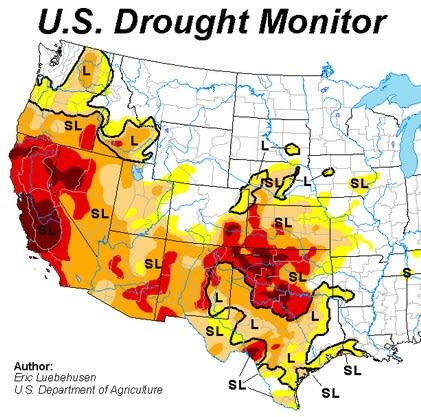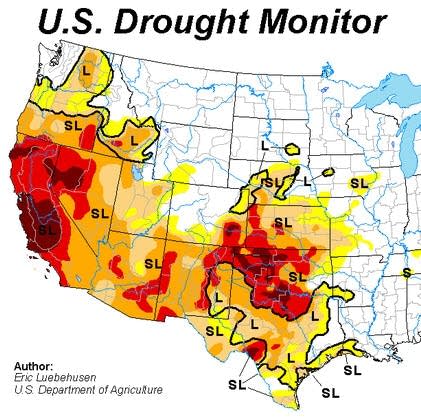Deluge doesn’t end groundwater concern

The recent heavy rains have been a drought-buster, leaving Minnesota entirely drought-free for the first time in a long time. But that's not the same thing as ending concern about the state's groundwater, Jim Stark, director of U.S. Geological Survey in Minnesota, told MPR News' Cathy Wurzer on Morning Edition today.

Aquifers -- water-containing rock and sand layers underground -- that are near the surface are responding to the heavy rains, Stark said. "They're up several feet in many cases and that is a really good thing for our groundwater systems."
But aquifers that are deeper and that are often the main source of drinking and other water for many city systems respond more slowly. "There's a lag time," Stark said.
"We still continue to be concerned about groundwater in many parts of the state, White Bear Lake being one," he said.
Create a More Connected Minnesota
MPR News is your trusted resource for the news you need. With your support, MPR News brings accessible, courageous journalism and authentic conversation to everyone - free of paywalls and barriers. Your gift makes a difference.
White Bear Lake has been the object of concern for years since its level starting dropping. Home- and business-owners have sued the state, arguing that the Department of Natural Resources should have done more to limit groundwater pumping by cities around the lake. The U.S.G.S. has attributed the decline in the lake both to lack of precipitation and to increased groundwater pumping.
"White Bear Lake is responding (to recent rain)," Stark said. "It's up a couple feet from its low. But these events that we have going on right now really are temporary with respect to our major groundwater systems. We'll continue to be concerned about sustainability in those aquifers on long term."
White Bear Lake is back up to 2008 levels, still several feet below the levels of a few years prior.
"That recharge is slow and it responds over long periods of time, years to decades. These events we see now won't be noticeable in those deeper aquifers for some time. There's a lag time of years to effect water levels significantly in those deeper systems. It depends on the depth of those systems and their connection to the land surface but years to decades."
That's why, Stark said, water conservation is still important in many parts of the state.